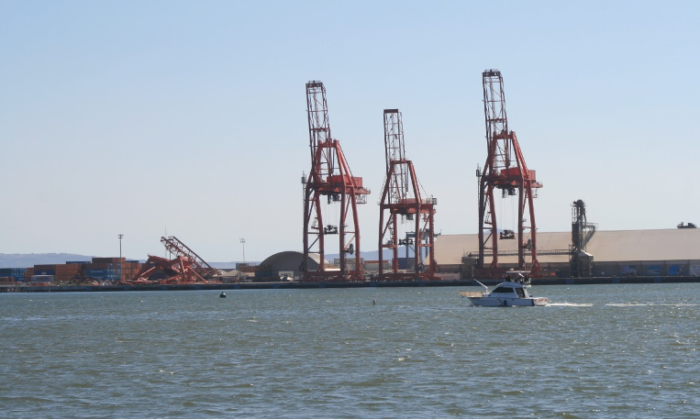
Ports, committed to the environment and for cleaner waters
27 May, 2022Given the growing need for a more sustainable world, maritime transport should not be the exception, so the different ports of Mexico, Latin America and the world seek to improve their operations more and more.
“That many of us here present in a virtual and face-to-face way agree and the importance of facing the challenges of sustainable port development,” said Ana Laura López Bautista, head of the General Coordination of Ports and Merchant Marine, within the framework of the V Hemispheric Conference on Sustainable Port Management and Environmental Protection, organized by the Secretariat of the Navy (Semar)
He also emphasized that private companies are strategic allies in ports, satisfying a wide range of supplies and services, in addition to allowing not only the continuity of operations, but the necessary modernization of these.
Port of Ensenada, Lázaro Cárdenas and Dos Bocas
Given this, in the conference entitled Port Practices in Sustainability, the administrations of the National Port System (Asipona) of Ensenada and Lázaro Cárdenas presented the measures that Mexican ports have adopted to approach a greener maritime transport.
The head of the Department of Ecology of the Asipona Ensenada, Melissa Marrón Cabrera, stressed that the port of Ensenada incorporated the ISO 14001 environmental management system, in addition to other certifications such as PERS Puerto Verde, in which it obtained the level of environmental performance 2 for which it was awarded the maritime prize of the Americas granted by the Inter-American Committee on Ports (CIP).
In addition, it adopted air and water quality monitoring measures, a wastewater treatment plant and conducts environmental outreach campaigns and species protection programs.
Similarly, the Operations Manager of the Asipona Lázaro Cárdenas, Joel Méndez Reyes, maintained the importance of environmental care in the ports, so that in the Michoacan port actions are carried out such as programs for the preservation of endemic species, monitoring of air quality, water, clean energy with intelligent energy infrastructure, among others.
Lázaro Almazán Correa, Operations Manager of Asipona Dos Bocas, mentioned that “a clean port is a healthy port.”
Thus, the port of Tabasco, with the difficult challenge of being an oil port, has a local anti-spill insurance of hydrocarbons to attend them in a timely manner.
In addition, in terms of sustainability, it has two lighters to measure the emission of greenhouse gases, promotes the saving and prevention of water pollution and manages waste with a vermicomposting, among others.
Port of Bahía Blanca
Alberto Carnevali, deputy general manager of the Executive Coordination of the Port of Bahía Blanca, Argentina, was pleased to present the action of the Argentine port to preserve the environment, which in 30 years have made significant progress.
The speaker emphasized the importance of maintaining a balanced port-city line, since very close is a city of approximately 10 thousand inhabitants.
“We always talk about a concept that is compensation, we know that we generate strong impacts to the community and that their quality of life is diminished by port practice,” he said.
Carnevali assured that all the actions of recent years are focused on trying to raise quality standards in the city area.
In this sense, the port carries out actions such as monitoring air and water quality, environmental buoys, waste management, as well as an alert system in the presence of hydrocarbons, among others, they also integrate the community with recreational activities within the port.
Ports of Peru
Manuel Hinojosa, president of the Board of Directors, National Port Authority (APN) Peru, highlighted the agency’s efforts to move closer to cleaner ports in the nation through environmental measures implemented in the 60 terminals and 40 piers.
“In APN we try that the ports that are part of the national port system are aimed at being sustainable ports, that their performance is environmentally adequate and that there is a balance in the three pillars, in the economic, social and environmental aspect,” he said.
He stressed that the priorities of sustainable ports must be efficient in waste management, water and environmental quality, energy consumption, among others.
Therefore, the APN carries out environmental monitoring actions in the different terminals, technical opinion for environmental management and promotes practices in ports to achieve their certification.
He also pointed out that the main challenges for the industry in Peru are the promotion of port sustainability, the application of the SDGs in port management and strengthening intersectoral work for the implementation of measures.
Categorized in:New
This post was written byTL Pacífico


Comments are closed here.